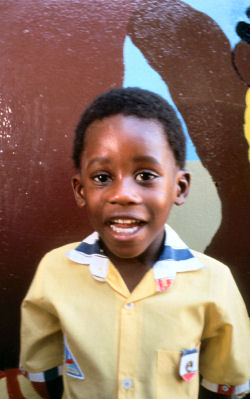Aids Orphans in Botswana, Africa

The Republic of Botswana is in southern Africa, north of South Africa and to the west of Zimbabwe, with Namibia on its eastern border. Since independence in 1966 there have been many impressive social and economic improvements. Ninety-seven per cent of the 1.5 million population have access to safe water, and with free primary education access to learning is high with over 84 per cent of children enrolled. A tremendous African success story until HIV/AIDS arrived.
Now, Botswana has, according to most estimates, one of the highest infection rates for HIV/AIDS. 37% of the adult population is affected. 120,000 children were orphaned as a result of HIV/AIDS, 75% of all orphans. (source UNICEF).
This is having a dramatic impact on the relatively high standards achieved since independence. The number of children orphaned as a result of HIV/AIDS is estimated to be between 60, and 80,000.
SOS Children works with the National Aids Co-ordinating Agency which has set up the Botswana-Baylor Children's Centre of Excellence to provide treatment and care for children affected by HIV/AIDS, including funding of countrywide community based HIV/AIDS organizations. SOS Children works to accept more children into our direct care. We are asked regularly to take in children from home-based care which has failed. A third SOS Children’s Village will be built in Serowe. This village will be built in three stages starting in the second half of 2006.
This country has been in the forefront of HIV/AIDS treatment for children and adults, and has had nearly 40 years experience of Government assistance and foreign assistance for destitutes and others in need. The result of this experience is that the role to be played by SOS Children’s Village is its traditional role of long term full time care of orphaned and abandoned children.
Children are being admitted over the ideal age because whole families have lost parents due to AIDS. Many of these children have never been to school and have no academic potential. This has forced us to find practical training in centres throughout the country where the less academically able can learn practical skills.
If you interested in helping the situation in Botswana you might like to consider how to sponsor a child in Botswana.